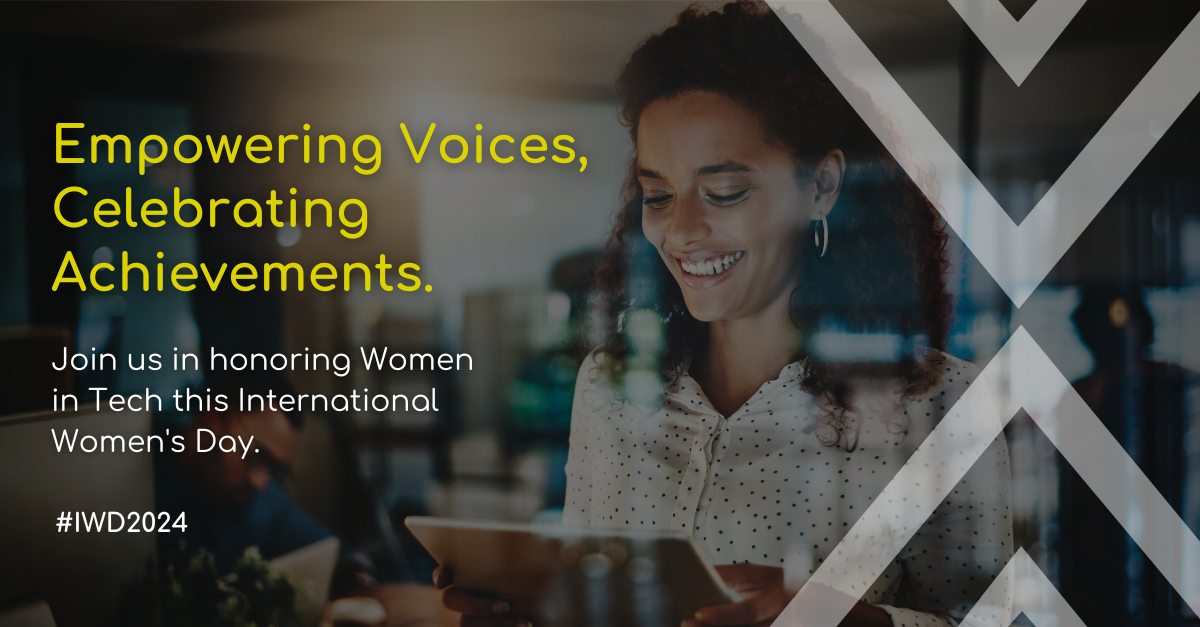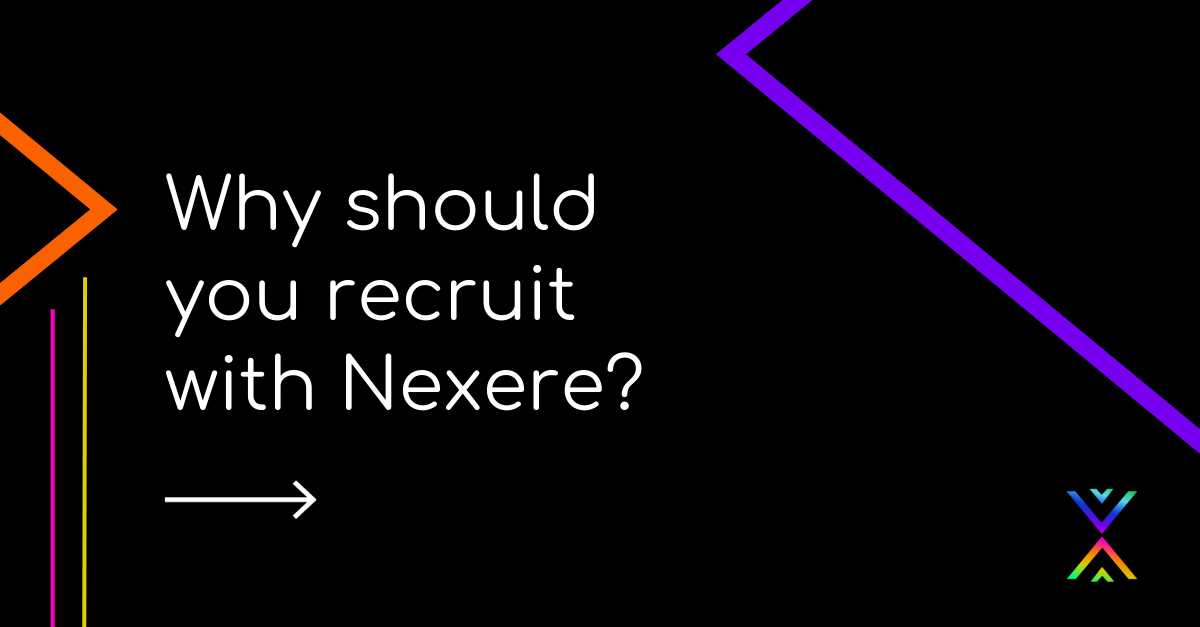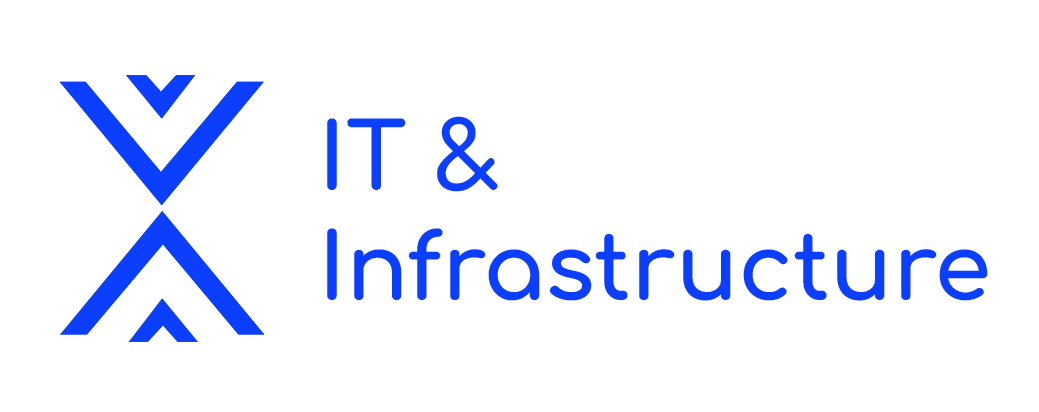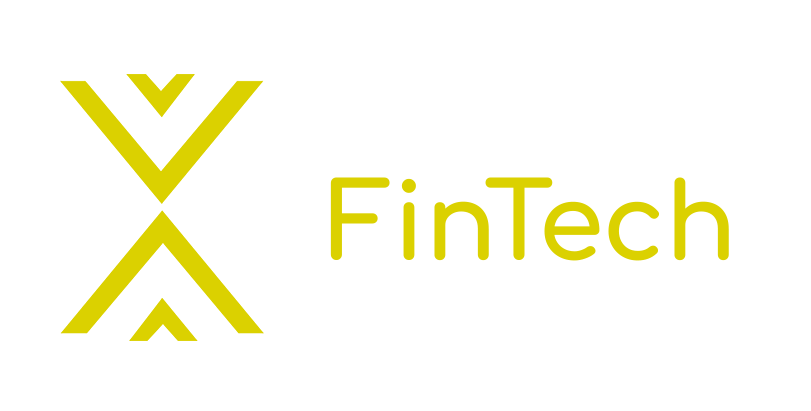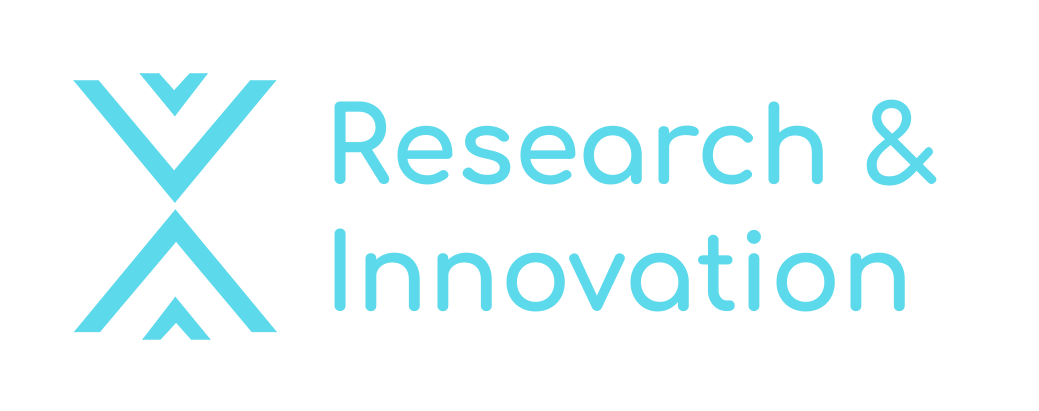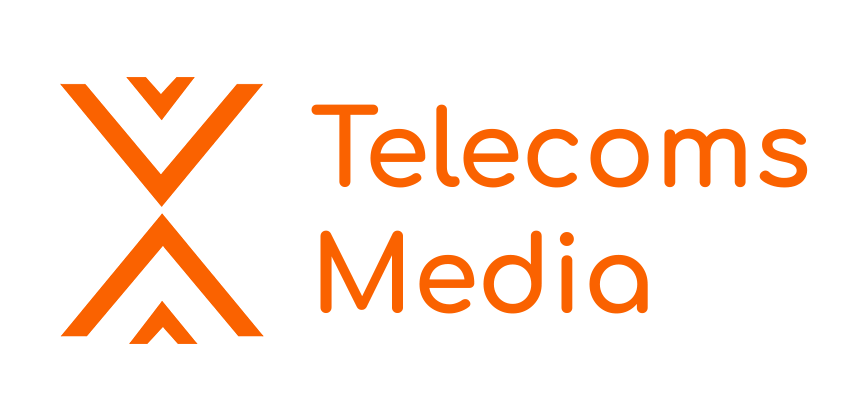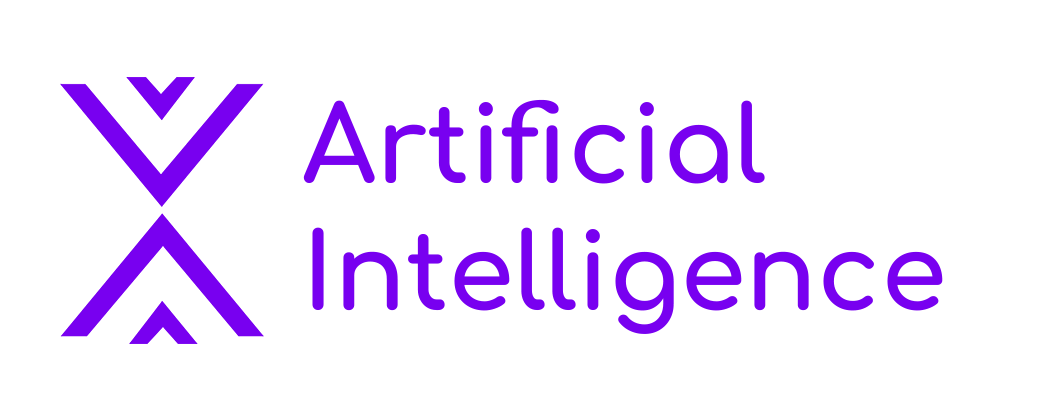
Podcast - Women's History Month: Women in Tech & Leadership
In our Next Up podcasts, our host Kloe, will be talking with passionate Techxperts covering the industries pressing topics, including Women in Tech, Diversity & Inclusion, Equality, Artificial Intelligence, Sustainability and more.
In this episode, we are joined by Amanda Obidike and Baiba Žiga for a special kick-off episode in celebration of Women's History Month. Listen as both Amanda and Baiba provide insight into the following questions:
- What are the benefits of having more women working in leadership positions within the technology industry?
- How do flexible work policies, such as remote work and flexible schedules, impact gender diversity in the tech industry, and what are some strategies for ensuring that all employees have access to these options?
- How can companies measure and track progress toward building a more inclusive company culture, and what metrics should be used to evaluate success?
This is next up, brought to you by Nexere Consulting where we cover the biggest topics in the tech jobs market.
Kloe: Thank you so much for joining me for episode one. Um, really exciting for Women's History Month. Um, let's start with some introductions. So Amanda, would you like to go first?
Amanda: Okay, Kloe, thank you so much for having me on the call.
My name is Amanda Obidike and, uh, happy Women's Month. Happy to be doing this with, uh, my amazing friend, uh, Baiba Žiga. So, uh, I'm from Lagos, Nigeria. I'm dialling in from, uh, uh, Nigeria. I serve as the founder of, uh, the science, technology, engineering, mathematics, and innovation makers of Africa. Uh, where we are also, uh, championing girls to excel in stem as well as training educators in the, uh, school space. And, uh, giving them the adequate resources that they need to, um, encourage and, um, uh, help young people to excel in stem. Uh, I think that should be all for now. Thank you so much, Kloe.
Kloe: Thank you. Over to you, Baiba.
Baiba: Thank you. Um, so yes, thank you so much, Kloe, for inviting us, uh, to have this conversation as part of Women's History Month.
Uh, my name's Baiba Žiga and I'm the founder of Lakehouse Consulting. And through the organisation I work as a workplace coach strategist, as a leadership, um, team coach predominantly. Um, and I work with topics of inclusion, work with topics of impact, and ultimately looking at what are the specific things that we need to address within, um, organisation's culture, um, to create higher levels of inclusion, of equity, of belonging in all the great things that we are looking for. And not just that, but also higher productivity and higher growth, um, you know, less hopefully sick days, you know, from people and all those kinds of things. Uh, and yeah, and then I get involved also in creating interventions, um, for those things.
So I am equally excited to be here, uh, with my friend and colleague, Amanda. Maybe a little plug. We are also doing some like really cool stuff together. Um, so there are, uh, definitely announcements and things coming. We are in the middle of, uh, doing some really, really exciting things in the space of EdTech and social, um, innovation.
So, yeah, that's all I'm gonna say. There's gonna be some cool announcements coming, but we are super, super excited. I'm definitely very, very excited to, uh, work together with, uh, with a friend and a colleague of mine who I, you know, look up to so much and, and really respect the work.
Kloe: That's amazing. And I'm sure a lot of this will, come up in answers as well. And, it's great to see a crossover between, diversity and inclusion and women in tech. As, two very important topics at the moment. It's gonna be great to cover these questions. So, yeah, let's, let's start with question one.
Um, what are the benefits of having more women working in leadership positions within the technology industry? Who wants to go first?
Baiba: Go on Amanda, I know you have some good thoughts.
Amanda: Oh, thank you so much Baiba . And thank you again, Kloe. You know, just before this, uh, meeting, I and Baiba had to also touch base to ensure that, um, you know, our responses will be well tailored to the audience. Uh, for free. Uh, I, I feel that, um, one of the benefits is, um, having to, you know, in the process of addressing the under representation and the unbalanced representation of women in technology, one of the remedy I feel is to, uh, raise women as role models.
So, uh, there's something I would like to call mirror psychology. Okay. A lot of people would feel more inclined to have women as role models, who you see. You can't see, you can't, uh, call someone a role model if you've not heard of their work, if you've not seen their work, or if you have not come across their work. And, uh, it's something that we also experience in this modern world. I'll give you an example. Uh, the, we have 24 commercial banks in Nigeria. Yes. And, uh, last year, eight outta these 24 banks decided they were gonna have women as their CEOs. And now this is a historical achievement because you, we don't have this exist in Nigeria, but guess what, Kloe and Baiba, uh, this, you know, having to put these women as CEOs or bringing them to the table attracted a lot of funding and a lot attracted a lot of respect, uh, from, you know, the global world. People wanted to like, invest in them. Uh, young women and girls looked at what they were doing before time, you know, because you don't just come out and you just put the person on the table. We realize that these women have always been in the back end doing amazing a lot in these banks. You know, helping them to close out in a lot of funding and a lot of expansion. But now bringing them to this table now made young women and girls like me see what they're doing and aspire to be like them. So that's one of the benefits of, you know, bringing in, uh, women where they can be seen and people can, you know, really be encouraged and attracted to them.
Another one that I would like to share and is the national study, uh, from the global, uh, strategy group was something that the Rockefeller, uh, foundation invested in this survey, and they discovered that one in four Americans say that there are no women in leadership positions at their current job. Now, apart from, you know, showing this, uh, imbalance, The, the remedy to this is how you know you are looking at increasing revenue. Because in the NGO space, for example, there are funder, there are funders that will ask you and say, how many women sit on your board? How many women are the leadership position? What is the gender ratio in your organisation? So these are things that, corporate organisations, funding organisations would like to see and understand that how welcoming or how, respectful you see women are. So it helps in increasing revenue. It also helps in driving innovation.
Then another one I would like to say, which is as a concluding path, is empathy. Women are naturally more empathetic or more emotional than men. Uh, it's not like we are turning down the men and everything, but this is something that psychology has proven. And now the advantage we have here is when you are able to empathise or feel or be in somebody's shoe, you become emotionally intelligent. You become more creative, you become more critical thinking in nature like you, uh, like, you know, as suspected because then you are able to, identify something that is wrong probably, and, you know, try to prefer a solution. So, uh, I think I would yield the floor to be for her comments.
Baiba: Yes, thank you. Thank you for raising, you know, the, the points around role models, um, and, you know, emotional intelligence and empathy. I think those are all very, very important conversations that are, that have been centered, um, in, in recent conversations and for the right reasons, especially as we are, challenging, you know, the fact that there are not enough, women and especially, um, black women and especially, you know, women, other women of colour that are not black women. And so I think there are many answers to this question, um, from, because this is the right thing to do to, because this adds more money to the, you know, global economies and strengthens global nations and communities. So there are, you know, many reasons for why there are benefits of having more women in the industry, more women in, um, the roles of technology.
And I feel another thing is that the world is changing in every aspect of the world. Um, our communities are more integrated than ever. Our problems are no longer just pockets of silent issues, but rather complex global calls for action. Um, our ecosystems are more layered and complex than they have ever been. However, I think that one of the most prominent changes, um, staying on the topic of tech is the speed and scale at which technology is developing right now. And while it is extremely exciting, you know, exploring new possibilities, uh, from where I stand, it is just as scary, uh, especially when we comprehend the incredible gaps that this is creating. When we still have places that have no internet or whole countries with barely, 2G connection at best. And then on the other side, you know, of the globe, we have people already living in Metaverse. And so we are creating huge, huge gaps. There are already huge gaps in, between nations, between, um, power gaps, gender power gaps. But within technology, technology has amplified and actually multiplied, um, these gaps. And so, so, you know, one, uh, this is leaving many behind, and by many, I mean mostly women and girls. And, uh, you know, this has also been the whole theme of the UN Women UK Summit that has happened, this month, the month of March, which is the, uh, women's History Month. And so, so that's one of the, with within these conversations, there have been, um, a lot of , urgent calls of action. We have heard from women in Palestine, we have heard from women in Lebanon, in Syria, in Iran, all talking about, the challenges and the gaps, the harassment, that technology is amplifying and multiplying. So that's one.
And the second thing I, that is concerning to me is also around the, who are the people who are building these systems and experiences and most importantly, who are not part of those processes, who are not sitting at that damn table. You know, to use a widely used analogy, the um. There are more autocratic regimes in the world right now than there are democracies, and not having enough women in decision making, policy making, tech making spaces directly impact the state of our democracies. And we cannot build healthy, prosperous nations and communities without women at those tables and without girls in schools. And so, you know, all this to say that not having women in these spaces, it hurts not only women and girls, but also our boys and men. It hurts our families, it hurts our organisations, it hurts our communities at large. And I know that it might seem that I'm kind of like elevated above the topic quite a bit here, but this is what I feel, um, it means of not having enough women and girls in tech and stem spaces. That is not just kind of a tech problem or women's problem, but actually we are talking, uh, you know, about the state of our democracies and state of our communities and state of our nations. Um, and so it's a, you know, a much bigger conversation and a much bigger, um, impact.
Kloe: Absolutely. And I, I think from my perspective, it's, it is about that relatability. And I think, the fact that in most circumstances, you know, board level is mostly male dominant. That's just how it's been for a very long time, but it's never been a true reflection of the product or service or company at hand. And yeah, you're totally right. It is way bigger than, than just this topic alone, but it's, it's the same kind of principles, isn't it?
Baiba: It is. It is. And you're absolutely right. You know, again, you're coming back down on an organisational level. Uh, absolutely. You know, we are talking about the fact that organisations are leaving also a lot of money on the table. If we talk about the things that matter to organisations, which is, you know, the bottom line, organisations are leaving a lot of money on the table because women do have a lot of, impact on the spending power on the family. You know, they are the ones who have decision making even on, on high um, value purchases such as holidays, such as, property, such as potentially a car. You know, if we need a family car so that, you know, our partner, now I'm gonna be speaking in a very kind of, stereotypical way, you know, say, so they don't kind of like go off and buy a, a sports car, right? So women do have, a huge impact on spending power. But then again, when we look at, for instance, you know, marketing, marketing is not targeting women. And, and you know, there, there are statistics out there as well, um, that say that were real, that around 80% of women say that they cannot relate to the marketing material that reaches them. So again, organisations, talking about marketing, talking about sales, haven't got the memo. So they are still leaving, you know, a lot of money on the table.
Again, you know, women are, one of the biggest spenders in terms of the demographics when it comes to technology as well. But again, when it comes to how technology is being designed, again, it's not, you know, women have, haven't been the, the first, they, they have been the afterthought rather than what has been centered or who have been centered and not just, you know, women. We are talking about, uh, people with disabilities. We are talking about, you know, people from different ethnicities. All of that comes in play. And there are so many outrageous examples out there, uh, where organisations have gotten it fundamentally wrong. And if there hadn't been someone at last minute who intervened, they would've, you know, produced and, and put out technologies that would, um, you know, or pieces of experience, whatever, that would exclude and potentially harm whole masses of communities. And that's, and that's where, that's where it becomes not only about bottom line, but where we are also talking about how that can be harmful.
Kloe: Mm-hmm. Definitely. Amazing.
So let's move on to question two. Um, how do flexible work policies such as remote working and flexible schedules impact gender diversity in the tech industry? And what are some of the strategies for ensuring that all employees have access to these options? Bit of a long question there, but.
Baiba: Amanda, please.
Amanda: . Okay. Thank you, Kloe. Uh, at least we've seen how, you know, we, you know, transformed the way we work, the way we interact, the way we, uh, go about doing businesses. And, um, I'm also happy that, companies have failed to plug in into certain flexibility options. Okay. So now, uh, we know flexible work practices should originally be an integral part in organisations.
Uh, I was saying, I was, you know, telling, uh, Baiba not too long ago that the benefits or the advantage of such thing is creativity. So, uh, creativity, I mean, now is you are not fixing them into a box to be, you know, be with you physically or to be in this time frame with you, but having to give them that will to decide. Uh, and it's something that a lot of employers should start, you know, looking at exploring. So we should come, we should be going past, you know, the routine or the traditional nine to five or eight to four or whatsoever, because now the pandemic and, uh, you know, the social justice movement in 2020 has changed the way work should be. So, uh, the advantage if you look at it is how you were able to harness talents and give them that free will of that flexibility, so that flexibility breeds creativity. Then on the other hand, it also breeds loyalty because, uh, we have also seen how, um, certain people would always say, even if they wanna leave that job, they still fall back or still give a testimonial that one thing I liked about X, Y, Z organisation was that they were able to factor in my mental health. They were able to factor in, my absence. They were able to factor in flexibility leaves or paid leaves, et cetera. So you have these feedbacks coming. So even if they are transitioning, there's always something about this organisation that they can remember. Now that's someone that has transitioned. Now let's also bring it back to, maybe employees or people that are in a system with you. When people realise that an employer is after their interest or is after their welfare, it's naturally breeds a lot of loyalty. It breeds a lot of trust in, in between, you find that they are willing to go above and ahead for you.
Now to your second question is something that it's also favours us in the NGO space. So say for example, you are someone is volunteering and, um, You get to, you know, you get to like throw in questions or throw in certain kind of task, um, you may not really get in the productivity or that maximum, strength that they have into that initiative. Reason is you have been the piper and you are also dictating the tune. So it's a way where we should look at it as a complimentary relationship where I need something from you, you need something from me, but how can we come in between? One remedy I have also seen is how employees or employers, sorry, should be able to be asking employees or, uh, their team members like, okay, in a week, how many hours are you willing to give in? How many hours are you willing to give in a week? How many hours are you willing to give in a day, et cetera. So when you come to that understanding is also good we design a framework that can correspond with that, like, the number of time or the average time that they would like to invest into the initiative, to the particular work. Uh, research also has it that a lot of times people go over that expectation, maybe over the enlisted responsibilities that you have given them because why you have come to a certain level of understanding with this particular employee or with this particular volunteer. So it's high time we start having these conversations with them. The conversation should not be around just top management and HR, but it's also best if HR system or personnel management the unit are able to have these conversations with these individuals to understand how best, you know, uh, fits them, uh, to ensure that, you know, you are bringing out the best in them and at the same time, you are also considering their mental welfare or their, you know, their psychological capacity, you know, just for better productivity.
Kloe: Excellent, and have you got some examples of what that flexibility looks like? People see that as just working from home, but there's, there's definitely a lot more to it than that. So have you got some examples of anything else?
Amanda: Yes. So, um, some examples of outta this could be, uh, it could help you, for example, in career advancements. Because if, for example, I'm in a level and I'm willing to give X, Y, z, make that level of commitment, uh, I should also be able to compliment my time outside of work in terms of advancing myself, uh, we have seen over time how people in the process of working are developing themselves, whether they're going for an advanced study, for example, and the company understand sometimes they even. Make some, some level of commitment or payment or just to ensure that you are advancing on that level. And, it still connects to that loyalty because maybe by the time you are done with that particular study or that particular advanced , cost that you have gone for you, the, the company would willingly want to like, absorb you or retain you and you feel, uh, lemme not say mandated, but psychologically you are drawn because these are the people that had your interest at heart. So, the flexibility also can also be in the form of an impact on pay equity. It can also have a, an impact on, changing work workplace policies. You know, like we, we shared how Covid, just changed the dynamics of how people deliver in the system. You can go on and on, but lemme just also give you this percentage that, It's very, very interesting. One way of this flexibility that has reflected even in the space for women , it has helped to attract more diverse workforce. Okay? Because now you have people that are complimenting in X, Y, Z, you're able to bring in another role, for example, you know, me and Baiba, we discussed something yesterday of how we would love to bring in certain young talents that are maybe skilled in social media marketing or another kind of role, rather than me investing my time or Baiba investing her time to do that. We would rather outsource it to a very young talent, you know, that would, is willing to give two hours of that time on a daily basis or four hours of that time on, on daily basis or something. Having to bring them into the system to do what they love or what they're specialised in for, you know, better productivity. That's one.
Then another one is, uh, you know, it also helps us to reduce that pay gap that we have that is also existing between men and women and are doing the same work. You would, you can, for example, be in a unit to find out that you may be doing the same thing with somebody, but at the same time, the, the pay is very, very different. One could be very high, the other one can be very low. It helps, uh, the system to see how to have a matching balance that feeds and suits both the, uh, man and the woman in the system.
Baiba: I'm just gonna touch on what Amanda said cuz as she was talking, I just made a couple of notes of what she was saying, so I don't forget to touch on those things. I loved her examples around, this kind of idea of continuous development because that goes also, as I mentioned earlier about how quickly technology is developing and our world, how quickly it's developing. So as I touched earlier, the world is developing at a high speed tech is developing at a high speed, and all of those things require new skill sets. So organisations need to invest in their people as part of their work so that their employees are not just the workers of today, but they also develop those people to be the workers or the employees and the talent of tomorrow.
Because, the infamous stat goes, I think came out in 2015. So it's, you know, the time has passed already a little bit. But, um, ultimately what it talked about is that, and I think it came from Dell Technologies, uh, where it said that by 2030, 85% of the jobs, by 2030, like, we don't even know what they're gonna be. They haven't been invented yet.
And so what ultimately, you know, what we're talking about here is the fact that, um, we don't necessarily know who we will need to hire tomorrow or not necessarily know what the job role is gonna look like or what's it gonna, what's the title is going to be. And so that continuous investment and development of our people who we have in our organisation today is so, so vital. Um, and that again goes, part of those kind of like, flexible working policy. So it shouldn't be just about the job at hand as it is today, but that job might look very, very different tomorrow. So instead of always being at the back foot looking for the next talent, who has that specific title? It's about, the developing our people and being kind of like, you know, already ahead, of that game.
The, the second thing that Amanda talked about was also about this kind of, um, and perhaps that's not exactly what she meant but what kind of came to me was also around this, you know, getting people to explore roles that they're passionate about. Because again, we, you know, people who have been in the job market for the past 20, 30, maybe plus years, they might be working or doing a particular job. They have fell into that job. That job pays for their lifestyle, pays for their families, but actually that potentially is not where, what they're best at, they, it's not necessarily what they enjoy most doing.
And so we are all not necessarily always playing at the strengths and passions of our people. And I understand that not necessarily it, it always is possible to do that, but I think that definitely. Because we might be having, someone within our organisation in a particular role, potentially as in a at risk role. And when I say at risk role, it could be a role that, goes redundant. It could be a role that goes redundant because of, tech, because of outsource. But if we haven't, engaged with our people enough and found out about our people enough, and up-skilled and side skilled our people enough, there's a lot of, opportunity to then move those people in those future roles that haven't quote unquote been, invented just yet.
But going back to, that's just kind of like some reflections, on what, Amanda was talking about, but then going back to your original question. I guess there are two things. One is the, the flexible work policies that you were talking about, but again, what Amanda touched about is also flexible policies and, I'll try to briefly touch on both of those things.
And so you talked about in your question example about, flexible work policies such as remote work, flexible schedules and, and those kinds of things. And, and these certainly are, positive interventions that enable, women to participate in labour market. However, these interventions address symptoms not necessarily the root cause of why there are not enough women, in these spaces or in the labour market. And so what I mean by that is that, women still do up to 10 times more unpaid care work than their male counterparts. Women still find they need to choose between building a family and building a career. Women still are underpaid for the work that they do in their workplaces, that is equivalent to their, again, male counterparts. So flexible work policies might be a good way to creating, you know, pathways and ways for women's participation, but they not necessarily fix the root cause of why these problems exist in the first place. And they also not necessarily enable all women in the same way. So we also need to, when we talk about policies, we also need to apply an intersectional lens when we talk about women or any demographic for that matter. Um, because, you know, our flexible policies of what is a flexible policy for one demographic or one person not necessarily is a flexible policy to another person, and not necessarily, they're just not, uh, enablers, but they sometimes can become barriers and blockers. So we need to look, uh, not just at the intervention, but at the impact of it
across a wide range of, you know, demographics and social identities , and like I said, you know, through applying an intersectional lens, but also looking at it from kind of within our organisation and also outside our organisation's walls.
Um, and, and organisations also need to be mindful about only looking at the share or number of women in their organisations, but also need to take a more holistic approach of looking at the whole kind of employee life cycle of women in this, um, scenario, you know, their promotions, their development, their exit rates, um, and really collect not just numbers, but also insights and real, you know, stories behind them. Because I feel that organisations are sitting on a, goldmine of information that they still haven't tapped into, and not necessarily they haven't tapped into because of their, uh, lack of capability to, to tap into it, but because there isn't appreciation for those stories and there isn't necessarily also an intent of making a long term sustainable positive impact.
And so the last thing that I just wanted to quickly touch on what Amanda also was, talking about is because I just talked about flexible work policies, but also about flexible policies. And what I mean by that is that, we also need to look at how are we creating two-way conversations. How are we, opening our doors for employees to come and share their feedback? How are their 360 kind of feedback loops by design, uh, within our organisations, kind of these like continuous learning cycle. Because again, you know, it's not about just taking an off the shelf, honestly, to say, oh, we need to protect our organisation, you know, from legal point of view. So this policy needs to sit within hHR but about, because, um, many of these policies are already outdated when we pick them up. There's also looking at, you know, um, not just looking at, but also creating environment of how we can evolve these policies and how we can co-create these policies with our employees and how can we, um, continuously keep on evolving them. Because again , if we co-create this piece of policy for, the employee base that we have here right now, it could be that, maybe we are missing something and then there is an employee that comes in and is able to add value to that. So it's about also, how can we make our policies flexible and informed by a range of people, again, within our organisation, but also outside, um, our organisation's walls.
Kloe: One thing that jogged my mind that you mentioned around, women taking on 10 times the amount of care, on average, I think there's quite an interesting point, based on the UK government announcing the childcare quite recently. Although the numbers are yet to be discussed, and I think the numbers are quite hit and miss in terms of what's possible at the moment, I think the fact that it's been acknowledged is a massive step in the right direction for a lot of people and I think, just thinking about, what opportunities, that could mean, for a lot of women that aren't currently working at all, they're, they've not been able to work because of, childcare. As a small example of just, just parents alone and what they have to battle, so that's a really interesting point, from what I've seen from, from that announcement as well.
Baiba: Oh dear. Childcare is in crisis in the UK, you know, to say the least. And there is a lot of work that needs to be done. And you're right, you know, it's great that it has been acknowledged because again, parents are not just women, there are also men. There are, you know, same sex marriages, um, who raise children, and the thing is, again, not having appropriate policies in place and, and interventions and enablers in place, uh, not only harms women, but also harms men. So if, even if we have our organisation populated with hundred percent men, you know, most of them will have partners, most of them will have families, most of them will have children. And, what's happening within their kind of family like outside the organisational walls also very much will have impact on these men within this organisation and therefore potentially our organisation's performance and all the things that are precious to organisations. So it's again, you know, looking at the wider impact, not just about, oh, this is the right thing to do for the women so they can come into, this is kinda like the charity that we are gonna do for women, so they can come into organisations, but about, no, actually, how does that work holistically affect also the fathers, also the, other kinds of, family units, within our organisation, but also, you know, holistically.
Kloe: Absolutely.
Okay. Um, so question number three. Um, the last question. How can companies measure and track progress towards building a more inclusive company culture and what metrics should be used to evaluate success?
Amanda: So, uh, one way I feel, you know, we can remedy this is, uh, or the solution around it is to. Been able to, uh, track, uh, and also leverage essential metrics around representation and retention. Now, I say representation and retention because it, it is one thing for us to flag and say, oh, we're very inclusive, we do X, Y, Z. We have, this certain kind of gender, race, and age that makes up our workforce but it's also another thing for us to understand what is the retention level. Okay. We also need to have this platform where you are able to share this data because a lot of times, When you share this data, you are naturally putting yourself under some level of accountability and transparency, or you don't get to really, see that oftentimes in organisations, uh, for example, there are some organisations that may say, okay, we would like to, track or understand the metrics in, in determining or getting more women into the middle or senior management. That's also a good key KPI ,is a good indicator to know what you need to do to bring these women on board, whether on a mid-level or on a senior level management.
And another one is, which is also still somehow related, is having to design some level of, diverse diversity scorecard now in this diversity score card can make up a lot of, issues around training and development, uh, racial bias, um, how we can tackle under representation of, uh, certain kind of candidate, et cetera. Uh, the reason is yes, this scorecard, you know, it captures KPI, which includes your race, whether disability or, uh, maybe any kind of demographic that you are coming from. But the key thing on what, uh, this scorecard should be able to help you identify is how employees of colour, for example, hold leadership positions. So, on the, on the top level, how many people are women in, in on the top level management? On the top, on that same top level management, how many people are not, maybe people of colour or from another region. How many people are able to be represented in on that table? It's, those are metrics that we can be looking at.
Then another one we can also look at, which, you know, often don't come by is the underrepresented candidates, for example, that is an organisation. How can you consider them beyond the interview stage? A lot of times it's something that naturally flows. Maybe like on the HR space, you wanna engage a, certain level, uh, certain number of talents, and sometimes ,we, we see that happen a lot, even in Africa. You, you don't even get to have, like a, an email from them saying, oh, maybe your application couldn't go any further, uh, but we would, you know, put you in our talent base in case of an X Y. Z , you don't see that happen, but these are little things that we're able to tell how our diversity or how our inclusion is.
I'll give you this example that happened to me and I would never forget it, but, I'm yet to see, a very, amazing HR who has done that too, like a young talent. So two years after, uh, graduating from the university, yes, I, I had a job, but then I was also still looking out for something better. And then I had this agency that reached out to me for, um, for interview, but this particular HR did something different. She asked me and said, what day would be okay for you to have this interview? It came as a shock to me, because in our world, if they understand that you need a job, they just throw it to you. Oh yeah, you have to come on Wednesday and you find out that a lot of people come because you, you are the one who needs something, yeah. So you have to go according to what they want, but I saw this person ask me what day fits best, like, according to my timing, I was very surprised. And then I told her, I said, okay, it, uh, yes is gonna work for me 3:00 PM And she was like, okay they're also going to check on their calendar and see if it fits best for me, uh, if feels best for them and that's it. Now, the key thing is I went for that, uh, that job opportunity, the interview and I didn't meet the, the expectations, yeah, but it's an unforgettable experience because afterwards the, uh, interview they told me, why I couldn't, you know, meet the certain expectation, but they were going to, you know, keep me in their database of, in case if subsequent opportunities come, you know, and all, they didn't call me back. but that communication helped me to understand how valuable they would put people or have, uh, young people in that organisation. So I can already mirror it, that even if I was to work there, they would really, respect you, whether irrespective of the level you are, whether you are in the, lower level management or mid-level management. Because why they have started to show or exhibit what, uh, the work culture of inclusion looks like even before getting to the door. So all these are many examples of how we should be able to, uh, put in certain level of diversity inclusion in our scorecard.
I would like to also add that in as much as we are going to be designing certain metrics to determine how inclusive inclusion or, uh, you know, an inclusive workplace works, we should also try to embed respects. So a lot of times we have, or we design D, DE&I efforts, but we don't have certain level of respect that we're putting in. So if we're designing this, uh, policies, for example, or this, D&I, procedures or policies, how many people outside of that unit are we bringing to the table, to understand their views, take it in respect and see how to integrate it. It doesn't look like what we are shoving into the amount, but how we all came into at a certain level of agreement or unison to, have this as a framework. So, I think I'll yield the floor here and I would, I know, Baiba is the expert in this space for her own comments.
Baiba: Thanks, Amanda. I don't know how much of an expert I am, but I definitely have probably a thing or two to say. And, uh, and I'll also reflect on some of the things that you were talking, they were, you know, um, very insightful.
So just going back to again, um, to the original question, uh, I think there are probably three things that I want to pull out of it.And the one is that you talked about, measuring, and you talked about metrics, um, you talked about inclusion and you talked about success. And so those three are quite, big loaded and powerful words. And I want to touch on them before and hopefully, you know, as I touched on, they'll answer the question anyway.
But first and foremost, around, success, I think it's important. Um, cause we say, you know, this contributes to our success, but then sometimes we haven't taken the time to actually sit down and evaluate and articulate what does success actually mean to us? What does it look like for us? Um, how do we, how will we know that we are successful? So we are quick to use this word and, and throw it around right up and center, but we actually haven't really sat with ourselves and defined and articulated, what is success to us? So that, that would be first thing that would then kind of inform what are the success metrics or what does inclusion look like here.
The second thing around inclusion, again, the word inclusion, such as the same as diversity, such as equity, such as DEI, as a acronym are being thrown, around right, left and center. But again, inclusion means something. It's not just a, a word that kind of like rolls off our tongues, quickly and easily, but it actually means something. So again, we need to take a moment to understand what is inclusion and what unpins that, one of the key pillars of inclusion is psychological safety because, again, before I, um, talk about psychological safety, it's important to understand, we talk about inclusion, but how do we. What does it look like on an operational level, right? That, that's, that's the conversation, what the conversation is about, you know, how are you, um, cultivating inclusion on everyday basis? And so for us to cultivate inclusion on everyday basis and, and kind of like, um, on activity level, we need to understand what that is and what enables it and what creates it.
And so as I mentioned, you know, one of the key pillars for that is psychological safety. And there are ways to measure it, and maybe measure is not necessarily the the right word I would like to use here, but there are ways to assess it. There are ways to create more visibility and clarity of the underlying levers that are affecting or enabling, psychological safety in our environment, and, then look at what are the ways that we can address those levers so that we can achieve psychological safety, so that psychological safety can unpin inclusion. And so, by having this, visibility, that helps us to create more targeted interventions, that will address the root causes of issues that are specific within our environment. Because again, there are many off the shelf solutions out there right now, in addressing conflict, in addressing teamwork, in addressing communications, in addressing diversity and inclusion. But again, off the shelf not necessarily works, in these topics. And we need to first and foremost understand what, enables and what are the barriers for collaboration, for, communication and, and those, and for vulnerability, you know, in our, in our specific particular space because they will be different whether we are talking about FTSE100 organisation, a scale up, a startup, a nonprofit, and so on. there needs to be a level of nuance, but we are of course, you know, very quick to get, off the shelf solutions. So, so once we have clarity and visibility, we can then start looking at specific interventions, for those issues, and ultimately, work on those things. Reassess them, evolve them, keep on invest. Cause it's not kind of like you assess it, you create an intervention and three months later there are no issues. You know, our cultures are living and breathing creatures and so we need to treat them as that and we need to give them the tlc that they need and we need to evolve them because again, various changes, technological changes, generational changes, they all affect how our culture manifests itself. And so, there is work that needs to be put into it before it starts growing, three heads and nine legs and those kinds of things.
The last thing was around metrics. I think we are quite good, at, we are very good and quick at measuring, floating heads within our organisation and, and representation absolutely matters. Um, but I think also, you know, in this case when talking about metrics, I think, what is more meaningful and impactful is measuring progress and measuring growth, not just collecting stats and data. Um, like I said, we are good at collecting data and then pushing out a report, but it's more powerful, asking, meaningful questions around progress, growth, impact, and looking at those things. And so this is where kind of also what, uh, Amanda was talking about. This is where those employee stories come in, where those customer stories come in because these stories that we see on Glassdoor, that we see on Google, reviews or, you know, wherever else people leave reviews is these are the things and the real reflection of our cultures, of our level of inclusion. And instead of, you know, because we can push as many reports with shiny data out there as we want, but these stories, these real experiences is what is going to tell the real story about what our cultures are, um, like and what they are about. And again, I don't feel that organisations are paying enough attention to that, that, you know, we have so much access through digital tools at our fingertips that there's, of course, you know, we might look at a website, but we all know that we have to take every organisation's website as a, window full of mannequins and full of, you know, made up, um, not necessarily made up, but like polished PR stories. And, and I think any person, especially one who's looking to, purchase something from that organisation, let alone go and work for that organisation, will go and do their investigation. Um, you know, cause when you think about even being on Amazon and buying something for, you know, £1.99, you know, I think most of us still go to the reviews section and read every single review from people who we've never met and, and why would we even care about what they think? But we care, we care about there is that, you know, social, um, what's the word I'm looking for? That, that social, I guess validation, what I'm, you know, um, that's not the right word, but I'm sure you know, people understand what I, what, what I talk about. Um, so organisations also need to, leverage that. Uh, but again, that work begins within their organisations.
Kloe: Absolutely. I think some really key points that you've both raised there is that actually the measurement and the success isn't always a number. It's not that, it's not that straightforward. Um, I guess if it was that straightforward, it probably would've kind of made a massive turn by now. Another really important point is, is that human element. And I think people forget that. And I think a lot of these key terms and a lot of these, buzzwords are, you know, it's very easy to, to kind of express the importance of them, but people don't know how to really reach for the answer or challenge the problem. So I think, yeah, it is, that's a really, really key takeaway there, that actually looking internally within companies and, and, and bringing the, the focus and attention to the people that are actually delivering the, the workforce kind of power, that to me is really powerful in itself.
Any closing comments at all or anything that you guys would like to add?
Baiba: The last thing probably I would like to say is that we need to understand that we can't engineer people problems out of people. We are so quick at investing in tech and, and investing big money in tech and looking at all the new and shiny things. But, and, and I'm kind of like hoping, oh, when we put this place or system in place, you know, that is gonna get rid of all of these problems. Yeah. Operational and process problems, but people are still people and people are still gonna be people. And so we need to think, get rid of this illusion that with tech, we are gonna engineer our people problems out of our systems, out of our organisations. If anything, tech has proven to just amplify those cleavages and to amplify those issues. So we just need to get very honest with ourselves and very, very mindful and very intentional about what we are investing in and what are we really trying to do here, what's the impact again?
Amanda: Just to add to, you know, what Baiba shared, uh, I also feel, uh, that in as much as we are driving or we are propelling women in, uh, to succeed, uh, in, technology or to bring them in leadership positions, I think we should also not forget empathy. Empathy, I mean is yes, we are doing amazing, we just want to ensure that women don't, get themselves, uh, into, uh, setting positions or, you know, addressing the under representation we have of women in technology. But we also, fail to understand what it is to empathise with them, also empathise with the workforce, knowing that the workforce is gradually changing.
I'll give you an example. You know, what's happening, for example, in America with the banks, with tech organisations winding up or, shutting down or, taking down staff. It's just about empathising with them. Like, after this job, what next? So when we start to realise, or, put ourselves in the shoes of whether the men, the women, then we begin to, cause I feel that it should go alongside. So as we are driving technology, let's also try to drive and, uh, treat ourselves in respect and, empathise with, the society.
Kloe: Absolutely. That's a great way to end the first episode. Thank you both so much for joining me. We've absolutely kicked this off with a bang, if you're listening to this, please check out, Baiba and Amanda's work, they've been, absolutely smashing out everything in the past week, so there's definitely a lot to reflect on there. And, um, yeah, thanks for joining us.
Baiba: Thank you so much. And I really do hope that there is value, uh, for the listeners, um, in this conversation. And I would really love to hear, you know, any comments, uh, from, from the listeners that might be reaching out to you. Uh, but yes, thank you so much for inviting us, um, having to have this conversation during the Women's History month.
Amanda: Thank you so much, Kloe. Uh, we hope that the, the audience is gonna find this interesting and, uh, you know, you can always share any questions that you have to I and Baiba, we'll be happy to respond to them. Thank you
Kloe: Brilliant. Thanks so much.


